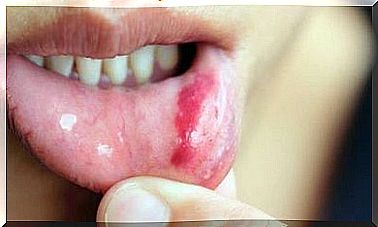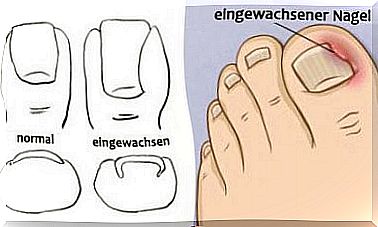Gastrointestinal Inflammation In Babies: What To Do?
If your baby has gastrointestinal inflammation, you have to follow the course of the disease very closely and be particularly vigilant. Otherwise complications can arise. You can learn more about this in this article.
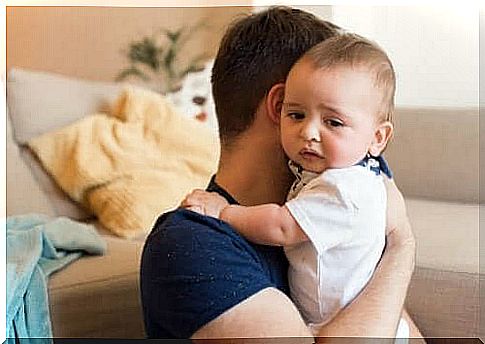
A gastrointestinal inflammation is also called gastroenteritis. This disease can cause serious problems in babies. It is therefore important that you recognize them early on and know what to do then.
To avoid complications, you must first understand the warning signs and also know about special care. Because in this way you can help improve your baby’s condition. In addition, the pediatrician should assess the need for any preventive measures even at an early age. This includes, for example, the rotavirus vaccination.
What is gastrointestinal inflammation in babies?
In the case of gastrointestinal inflammation , one speaks colloquially of gastrointestinal flu, vomiting, diarrhea or stomach flu. This is used to describe an inflammatory disease of the gastrointestinal tract. This condition usually starts with the following signs and symptoms:
- Diarrhea. A baby’s normal stool is soft or slightly watery. Therefore, diarrhea can be difficult to identify at times. But if you notice certain changes, for example in the amount, you should consult the pediatrician.
- Vomiting. It is important that you do not mistake vomiting for a burrow. You should know that when you vomit, food or food residues are vigorously spit out and only a little liquid escapes from a normal burrow.
- Fever. One speaks of fever when the external body temperature (measured in the armpit or in the groin area) is above 37.5ºC.
- Abdominal pain. This symptom is the most difficult to spot. Because the baby can only express it through crying.
What causes gastroenteritis in babies?
The main cause of this disease is infectious diseases. These can be caused by viruses, bacteria or parasites. The rotavirus is the most common cause of viruses in industrialized countries.
In addition , the reason can be other infections as well. These have nothing to do with the gastrointestinal tract. Such as an ear infection or a urinary tract infection. It can even occur with diet changes, or with other systemic diseases.
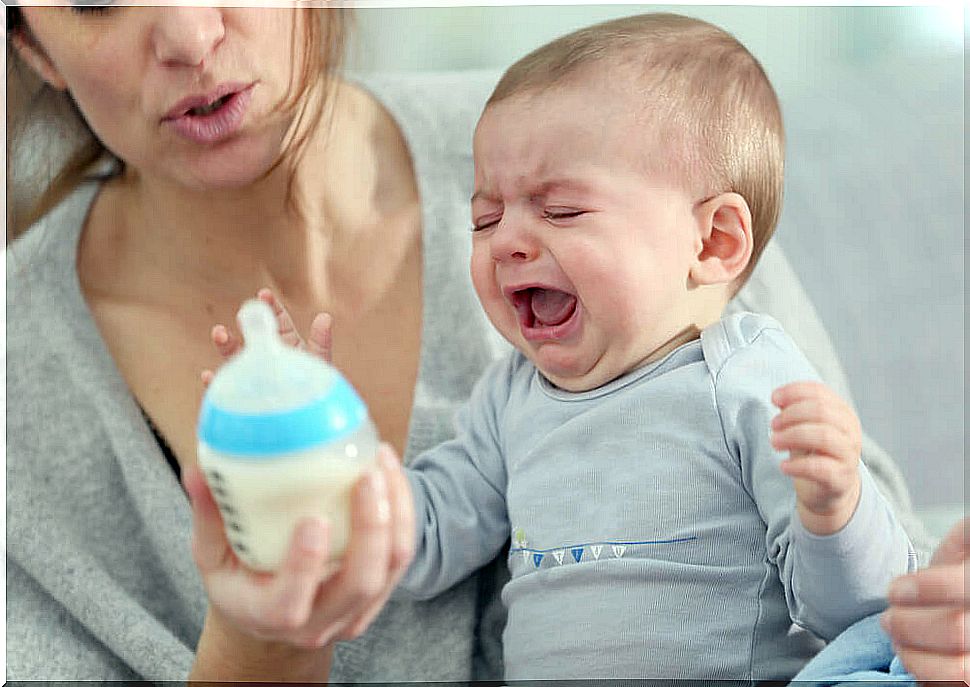
What can you do to prevent gastrointestinal infections in your baby?
In order to prevent gastrointestinal inflammation in your baby, the following is important first: You need to know what the main causes of this condition are. As you could just see above, germs, bacteria and viruses are the main culprits. So you should make sure that it does not transmit them.
As a result, there are a number of measures you should take. Because these help you to ensure that these pathogens cannot be transmitted so easily :
- First of all, it is important that you wash your hands regularly. Because this simple measure actually represents one of the most important steps to prevent the transmission of possible pathogens.
- In addition, you should strictly follow the recommendations for storing baby milk. It doesn’t matter whether you use natural breast milk or other infant formula.
- Equally important, you need to make sure that your baby is not in contact with adults or children who show signs or symptoms of illness. If you have any doubts about whether or not it is contagious, be careful and postpone the visits to a later date.
- Also, you shouldn’t kiss your baby on the mouth or hands if there is a suspicion of a possible infection. Because your saliva contains and transmits many pathogens.
- In addition, thorough hygiene of the pacifiers and the teats of the baby bottles is very important. You should clean these daily.
- Last but not least, you should always observe and adhere to the vaccination calendar. You can also ask your pediatrician more precisely about the rotavirus vaccine.
When should you go to the doctor?
If babies have gastroenteritis, special care must be taken by parents or other family members. The most common complications include :
- Dehydration due to excessive loss of fluids and electrolytes.
- Hypoglycemia, which is low blood sugar as a result of lowering blood sugar levels.
- Temporary lactose intolerance due to loss of enzymes in the intestinal walls.
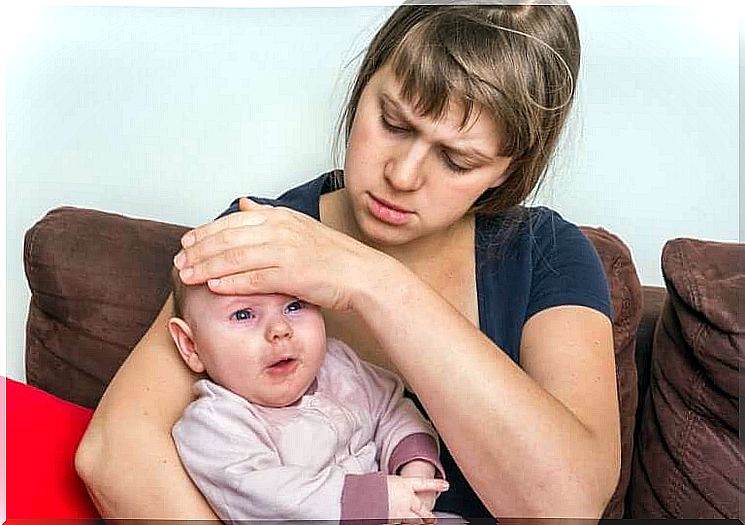
So that it doesn’t get that far, it is advisable that you go to the pediatrician or the emergency room if you have the symptoms listed below:
- When diarrhea occurs in infants under 6 months of age.
- If you have a fever of more than 38ºC or higher.
- If vomiting occurs or the baby refuses to eat.
- Even if you have a weight loss notice with your little ones.
- If there is blood or mucus in the stool.
Then, after the appropriate examinations, the pediatrician can say whether it is actually a gastrointestinal inflammation. In addition, a stool sample may be necessary. This is because the doctor can use a culture to determine which germ is exactly the cause.
How to treat gastrointestinal inflammation in babies
If you suspect gastrointestinal inflammation in your baby, you or the other caregivers should pay close attention to the symptoms. Also note whether the infant refuses to eat:
- First of all, you should continue to breastfeed normally. Because that is one of the most important measures for babies or toddlers. However, you should not dilute the milk when using baby food. Rather, keep the same amounts as normal when preparing the food.
- The pediatrician, after the appropriate examination and diagnosis, can assess what treatment the baby is necessary. He may be able to prescribe treatment based on oral hydration supplements.
- If the baby is unable to retain orally administered fluids, the doctor may consider IV fluids. In either case, he will choose the method that is most conducive to recovery and that will avoid serious complications.
Do you suspect your baby may have gastrointestinal inflammation? Then see if you notice the symptoms mentioned above and have your little one examined by your pediatrician as soon as possible. Because only specialists are really able to make a correct diagnosis and determine the best treatment for the child in each case.

